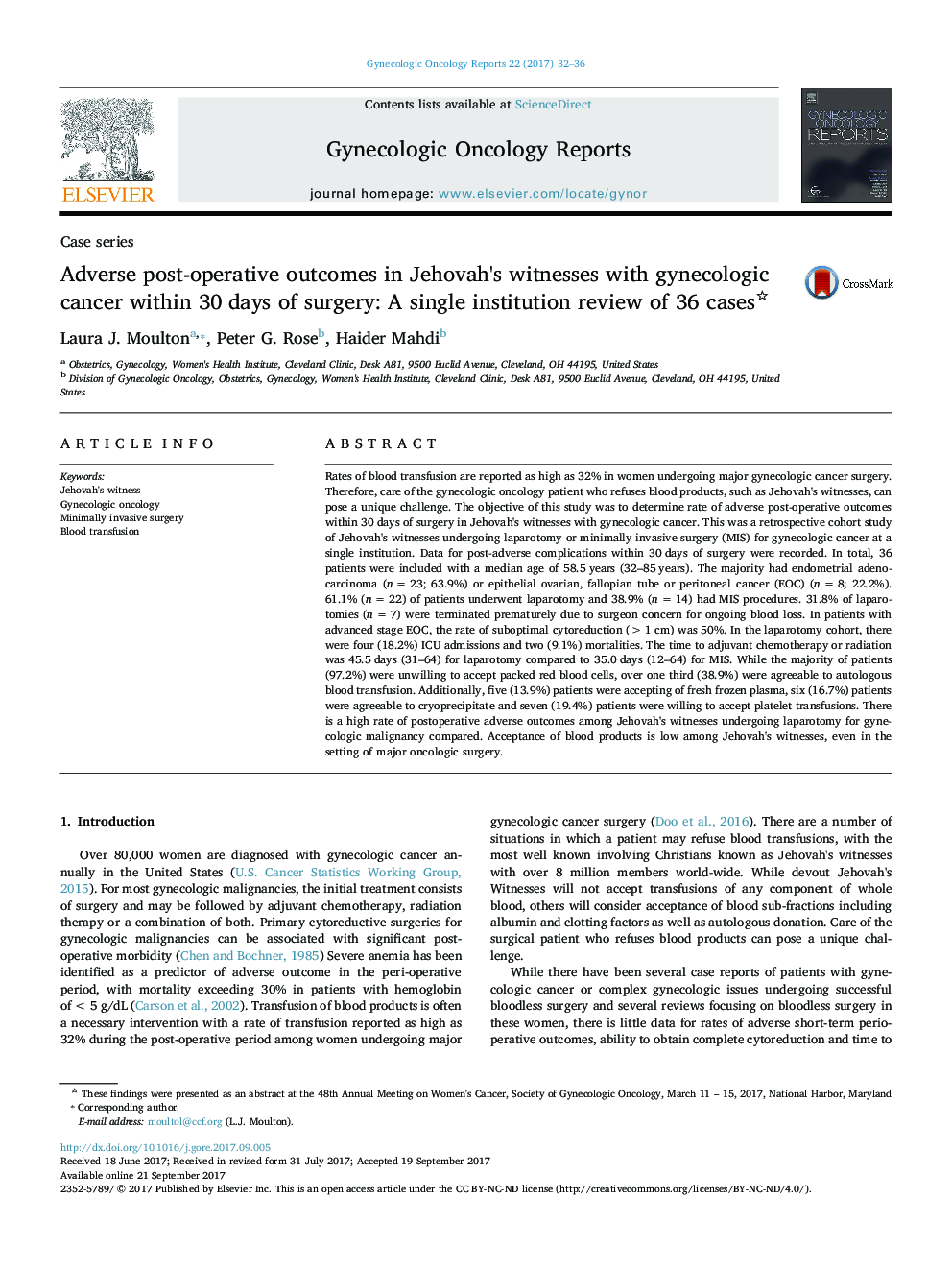| Article ID | Journal | Published Year | Pages | File Type |
|---|---|---|---|---|
| 5691357 | Gynecologic Oncology Reports | 2017 | 5 Pages |
Abstract
Rates of blood transfusion are reported as high as 32% in women undergoing major gynecologic cancer surgery. Therefore, care of the gynecologic oncology patient who refuses blood products, such as Jehovah's witnesses, can pose a unique challenge. The objective of this study was to determine rate of adverse post-operative outcomes within 30 days of surgery in Jehovah's witnesses with gynecologic cancer. This was a retrospective cohort study of Jehovah's witnesses undergoing laparotomy or minimally invasive surgery (MIS) for gynecologic cancer at a single institution. Data for post-adverse complications within 30 days of surgery were recorded. In total, 36 patients were included with a median age of 58.5 years (32-85 years). The majority had endometrial adenocarcinoma (n = 23; 63.9%) or epithelial ovarian, fallopian tube or peritoneal cancer (EOC) (n = 8; 22.2%). 61.1% (n = 22) of patients underwent laparotomy and 38.9% (n = 14) had MIS procedures. 31.8% of laparotomies (n = 7) were terminated prematurely due to surgeon concern for ongoing blood loss. In patients with advanced stage EOC, the rate of suboptimal cytoreduction (> 1 cm) was 50%. In the laparotomy cohort, there were four (18.2%) ICU admissions and two (9.1%) mortalities. The time to adjuvant chemotherapy or radiation was 45.5 days (31-64) for laparotomy compared to 35.0 days (12-64) for MIS. While the majority of patients (97.2%) were unwilling to accept packed red blood cells, over one third (38.9%) were agreeable to autologous blood transfusion. Additionally, five (13.9%) patients were accepting of fresh frozen plasma, six (16.7%) patients were agreeable to cryoprecipitate and seven (19.4%) patients were willing to accept platelet transfusions. There is a high rate of postoperative adverse outcomes among Jehovah's witnesses undergoing laparotomy for gynecologic malignancy compared. Acceptance of blood products is low among Jehovah's witnesses, even in the setting of major oncologic surgery.
Related Topics
Health Sciences
Medicine and Dentistry
Obstetrics, Gynecology and Women's Health
Authors
Laura J. Moulton, Peter G. Rose, Haider Mahdi,
